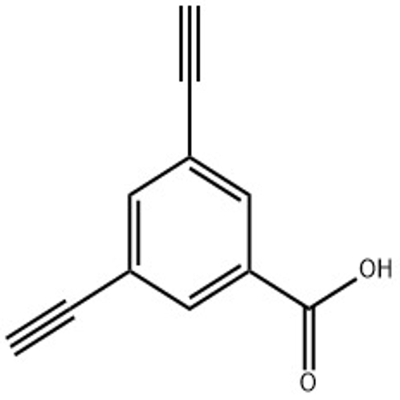-
Categories
-
Pharmaceutical Intermediates
-
Active Pharmaceutical Ingredients
-
Food Additives
- Industrial Coatings
- Agrochemicals
- Dyes and Pigments
- Surfactant
- Flavors and Fragrances
- Chemical Reagents
- Catalyst and Auxiliary
- Natural Products
- Inorganic Chemistry
-
Organic Chemistry
-
Biochemical Engineering
- Analytical Chemistry
-
Cosmetic Ingredient
- Water Treatment Chemical
-
Pharmaceutical Intermediates
Promotion
ECHEMI Mall
Wholesale
Weekly Price
Exhibition
News
-
Trade Service
5,6,7,8-TETRAHYDRO-1,6-NAPHTHYRIDINE-2-CARBOXYLATE, commonly known as THN, is a chemical compound that has a wide range of applications in the chemical industry.
It is an intermediate chemical used in the production of various products, both upstream and downstream.
Upstream Products
One of the most common upstream products of THN is p-Toluenesulfonic acid (TsOH).
TsOH is used as a catalyst in the production of polystyrene, a widely used plastic.
The reaction mechanism involves the formation of a Grignard reagent, which is then coupled with styrene monomer to produce polystyrene.
TsOH is also used in the production of terephthalic acid, a precursor to polyester fibers and plastics.
Another upstream product of THN is chloroformic acid, which is used as a catalyst in the production of PVC (polyvinyl chloride) polymers.
The reaction mechanism involves the dehydrochlorination of chloroformic acid to produce HCl, which then reacts with vinyl chloride monomer to produce PVC.
Downstream Products
One of the most common downstream products of THN is a chemical known as 4,4'-ODD (4,4'-dihydroxydiphenyl).
4,4'-ODD is used in the production of a wide range of products, including polycarbonates, polysulfones, and polyethersulfones.
These materials are used in applications such as automotive parts, medical devices, and water treatment systems.
Another downstream product of THN is Bisphenol A (BPA).
BPA is used as a building block in the production of polycarbonate plastics, which are used in applications such as food and beverage containers, medical devices, and automotive parts.
BPA is also used in the production of epoxy resins, which are used as a coating for metal products.
Benefits of Using THN
THN is a versatile intermediate chemical that has many benefits for the chemical industry.
One of the key benefits is its ability to produce a wide range of downstream products, including Bisphenol A and 4,4'-ODD.
These chemicals are used in a wide range of applications, from plastics and medical devices to water treatment systems.
Another benefit of using THN is its ability to produce these products at a relatively low cost.
Because THN is an intermediate chemical, it can be produced in large quantities at a relatively low cost, making it an efficient and cost-effective building block for the production of downstream products.
Challenges of Using THN
Despite its many benefits, there are also some challenges associated with using THN in the chemical industry.
One of the main challenges is the potential for environmental pollution.
THN can be hazardous to the environment if not handled properly, and there are strict regulations in place to ensure that the chemical is handled and disposed of safely.
Another challenge is the potential for supply chain disruptions.
The production of THN is a complex process that involves multiple steps, and any interruption in the supply chain can have a significant impact on the production of downstream products.
Chemical companies must work closely with their suppliers to ensure a steady and reliable supply of THN.
Conclusion
THN is a versatile intermediate chemical with many applications in the chemical industry.
Its ability to produce a wide range of downstream products, including Bisphenol A and 4,4'-ODD, makes it an important building block for the production of a wide range of chemicals and plastics.
However, its potential for environmental pollution and supply chain disruptions must be carefully managed to ensure the safe and efficient production of these products.







